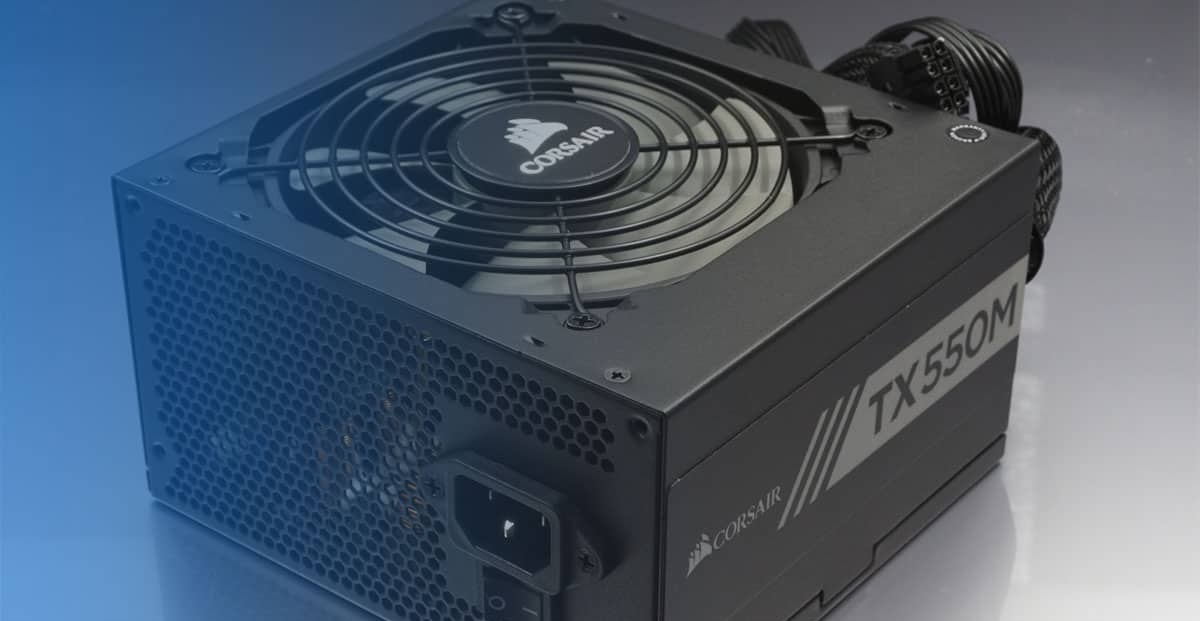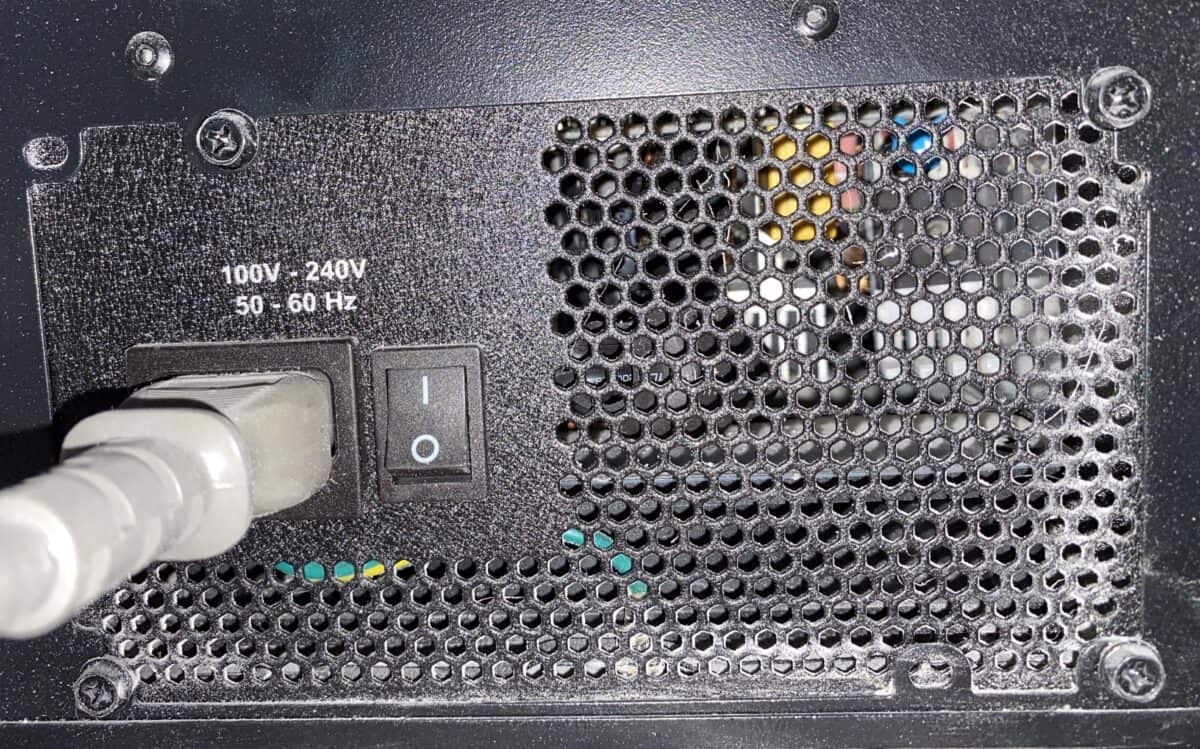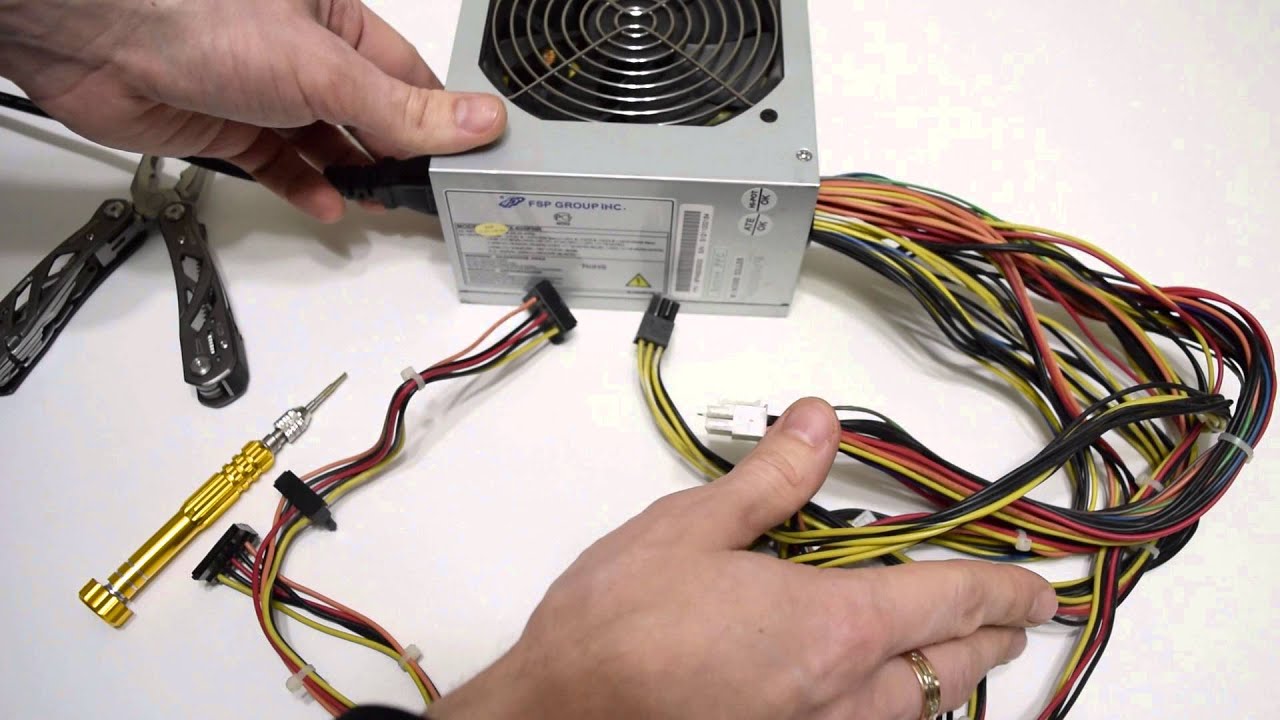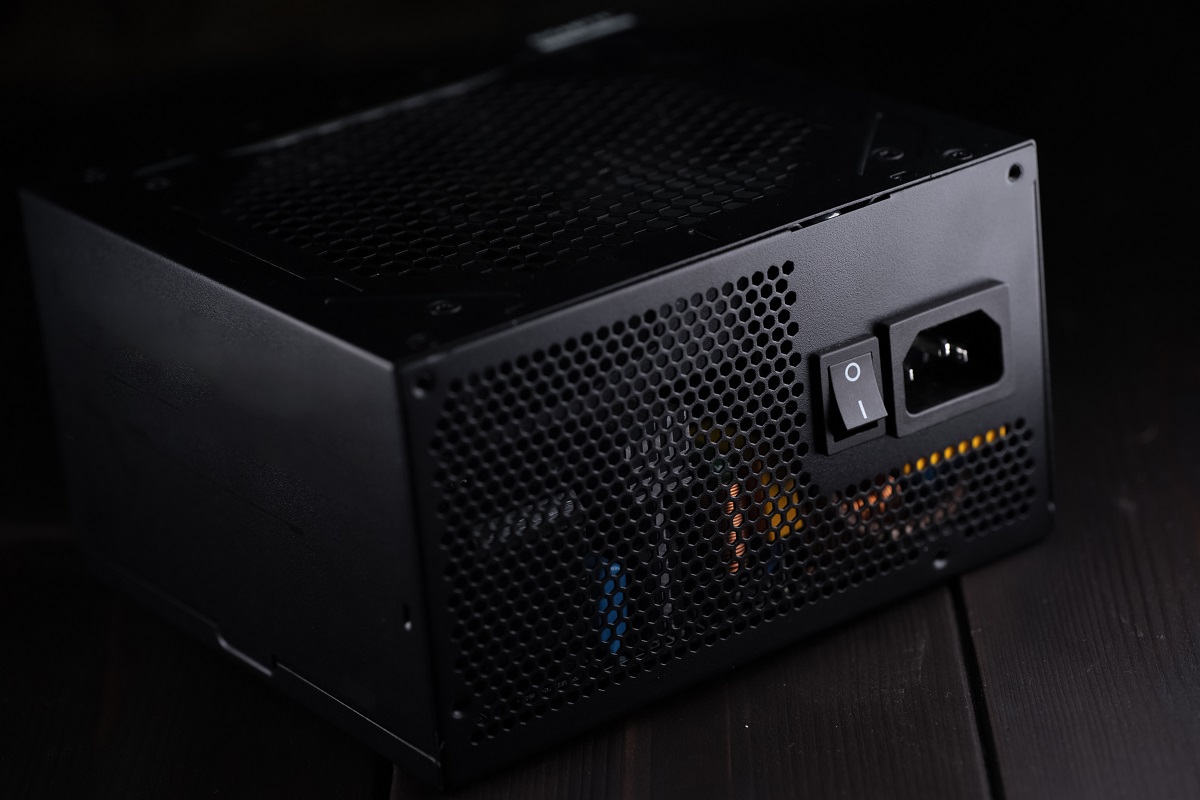Introduction
When it comes to building or upgrading a computer, one of the most important considerations is ensuring that your power supply unit (PSU) is up to the task. The PSU is responsible for converting the AC power from your wall outlet into the DC power that your computer components require to function properly. Choosing the right wattage for your PSU is crucial to ensure that it can handle the power demands of your system.
Inadequate power supply can lead to system instability, crashes, and even component damage. On the other hand, using an overpowered PSU can not only be a waste of money but also lead to inefficiencies and increased power consumption.
But how do you determine the appropriate wattage for your PSU? This article will provide you with the essential information and methods to help you determine the wattage that is suitable for your needs. Whether you are building a new PC or upgrading an existing one, knowing your PSU wattage is an important step towards ensuring a stable and efficient system.
What is a PSU and Why is it Important?
A power supply unit (PSU) is a crucial component of a computer system that converts the electrical power from an outlet into usable power for the various components in the system. It provides regulated and stable DC power to ensure the proper functioning of the CPU, GPU, RAM, storage drives, and other peripherals.
The PSU plays a vital role in distributing power efficiently and protecting the delicate components of your computer system. It ensures that each component receives the required amount of power to operate optimally without being underpowered or overwhelmed. It helps prevent voltage spikes, fluctuations, and irregularities that can damage your hardware.
Choosing the right PSU for your system is important for several reasons:
- Stability: Inadequate power supply can result in system crashes, reboots, or unpredictable behavior. A PSU with insufficient wattage may struggle to provide enough power for your components, leading to instability and performance issues.
- Component Safety: Overloading a PSU with excessive power demands can put stress on its internal components and potentially lead to overheating, power supply failures, or even damage to other components connected to it.
- Efficiency and Power Consumption: An appropriately sized PSU ensures optimal energy efficiency. An overpowered PSU will draw more power from the outlet than necessary, resulting in wastage of electricity.
- Future Upgrades: Considering your future upgrade plans is essential. If you anticipate adding more power-hungry components in the future, it is wise to choose a PSU with a higher wattage to accommodate those upgrades without needing to replace the power supply.
In summary, a PSU is a critical component that ensures the stability, safety, efficiency, and compatibility of your computer system. It is essential to select a PSU with the appropriate wattage to meet the power requirements of your components and allow for future expansion.
Factors to Consider When Determining PSU Wattage
When determining the wattage required for your PSU, it’s essential to consider several factors that impact the power requirements of your computer system. Here are the key factors to keep in mind:
- Processor (CPU): The type and power draw of your CPU play a significant role in determining the PSU wattage. High-end CPUs and overclocked processors generally require more power compared to lower-end models.
- Graphics Card (GPU): If you have a dedicated graphics card, its power requirements should be taken into account. GPUs vary significantly in power consumption, with high-end gaming cards consuming more power than entry-level or integrated graphics.
- Additional Components: Consider the power draw of other components such as RAM, storage drives, cooling systems, and peripherals like fans, RGB lighting, and USB devices. These can contribute to the overall wattage requirement of your system.
- Overclocking: If you plan to overclock your CPU or GPU, it will increase their power consumption. You should factor in the overclocked power requirements when determining the wattage for your PSU.
- System Load: Assess how you will be using your computer system. If you’ll be running resource-intensive tasks like gaming, video editing, or 3D rendering, your system will draw more power compared to regular web browsing or office work.
- Redundancy: Some users prefer to have extra headroom in PSU wattage to ensure system stability, especially if running multiple hard drives or other power-hungry components simultaneously.
While these factors can provide a general idea of your PSU’s wattage requirements, it’s crucial to remember that each computer system is unique. The best way to determine the precise wattage needed is by using one of the methods outlined below or consulting with a professional.
Method 1: Checking the Manufacturer’s Specifications
One of the simplest and most reliable ways to determine the appropriate PSU wattage for your computer is by checking the manufacturer’s specifications for your components. Manufacturers provide detailed information regarding the power requirements for their products, including CPUs, GPUs, and other major components.
Here’s how you can use this method:
- Identify the brand and model of your CPU, GPU, and other power-consuming components.
- Visit the manufacturer’s website or check the product documentation for the power consumption specifications of each component.
- Note down the maximum power draw in watts for each component.
- Add up the power consumption values to calculate the total wattage required for your system.
For example, if your CPU has a maximum power draw of 95 watts and your GPU requires 200 watts, the total wattage needed for these two components alone would be 295 watts.
Keep in mind that these specifications represent the maximum power consumption under full load, so it’s wise to round up to the nearest hundred to provide a buffer and accommodate any additional power requirements.
It’s important to note that this method only considers the power consumption of individual components and doesn’t account for other factors like system load or peripherals. Therefore, it’s recommended to add an additional margin to your total wattage calculation to ensure stability and accommodate for any future upgrades or expansions.
By checking the manufacturer’s specifications, you can get a rough estimate of the wattage required for your PSU. However, for a more accurate calculation, consider using one of the other methods discussed below.
Method 2: Using an Online PSU Calculator
Another convenient and accurate way to determine the suitable wattage for your PSU is by using an online PSU calculator. These calculators are specifically designed to take various factors into account and provide an estimate of the wattage requirements for your computer system.
Here’s how you can use this method:
- Search for an online PSU calculator. There are several reputable websites that offer these calculators, such as Newegg, Cooler Master, and OuterVision.
- Enter the details of your computer components, including the CPU, GPU, RAM, storage drives, fans, and any other power-consuming peripherals.
- Specify whether you plan to overclock your components, as this affects the power consumption.
- Consider providing an estimate of your system load, such as gaming or video editing, to provide a more accurate calculation.
- Click on the calculate button to generate the recommended PSU wattage for your system.
The online PSU calculator considers various factors, including component specifications, overclocking, and system load, to provide a more comprehensive and accurate estimate of your PSU wattage requirements.
Be sure to double-check the results and compare them with the specifications provided by the manufacturers of your components. It’s advisable to round up the calculated wattage to the nearest hundred for added headroom and to ensure stability.
Using an online PSU calculator takes the guesswork out of determining the wattage required for your PSU. However, it’s important to note that these calculators provide estimates and should be used as a guideline. If you want a more precise assessment, consider the next method.
Method 3: Consulting with a Professional
For individuals who want a more accurate and personalized assessment of their PSU wattage requirements, consulting with a professional is an excellent option. An expert in the field, such as a computer technician or an experienced builder, can provide valuable insights based on their knowledge and experience.
Here’s how you can utilize this method:
- Locate a reputable computer professional or technician who is knowledgeable about PSU wattage requirements.
- Provide them with detailed information about your computer components, including the CPU, GPU, RAM, storage drives, and any peripherals or planned future upgrades.
- Discuss your usage patterns, such as the specific tasks you perform on your computer and the duration of high-demand activities like gaming or video editing.
- Ask for their recommendation on the appropriate wattage for your PSU based on the provided information.
A professional can take into account various factors specific to your system and usage scenario to give you a reliable recommendation. They can consider additional factors that may be overlooked by online calculators, such as specific power requirements of niche components or compatibility concerns.
Additionally, consulting with a professional offers the opportunity to ask questions, seek advice, and gain a deeper understanding of how the PSU factors into your computer system’s overall performance and stability.
Keep in mind that engaging with a professional may come with a fee, but the insights and peace of mind gained from their expertise can be well worth the investment, especially for complex systems or if you lack experience in this area.
By consulting with a professional, you can receive personalized advice and recommendations based on your specific requirements, ensuring that you choose the optimal wattage for your PSU.
Tips for Choosing the Right PSU Wattage
Choosing the right wattage for your PSU is crucial to ensure the stability and efficiency of your computer system. Here are some helpful tips to keep in mind when determining the wattage for your PSU:
- Consider Future Upgrades: If you plan to upgrade your components in the future or add power-hungry peripherals, it’s advisable to choose a PSU with a higher wattage to accommodate those potential power requirements.
- Calculate the Total Power Consumption: Add up the power consumption of your components based on their specifications or by using an online PSU calculator. Remember to include additional power requirements for overclocking and system load.
- Check High-Quality PSU Brands: Invest in a reputable and high-quality PSU brand to ensure reliability and longevity. A good PSU will provide stable power delivery, better efficiency, and protection features for your system.
- Consider Efficiency Ratings: Look for PSUs that have higher 80 Plus efficiency ratings, such as 80 Plus Bronze, Silver, Gold, or Platinum. These ratings indicate the PSU’s efficiency in converting AC power into DC power, reducing wasted energy and saving you money on electricity bills.
- Provide a Safety Margin: It’s recommended to choose a PSU wattage that is slightly higher than the calculated total power consumption to provide a safety margin. This helps ensure stable operation and prevents power supply from operating at maximum capacity.
- Adequate Cooling: Choose a PSU with efficient cooling mechanisms, such as a fan or passive cooling, to keep the unit and other components properly cooled. This helps maintain optimal performance and prolongs the lifespan of the PSU.
- Consider Modular PSUs: Modular power supplies allow you to detach and connect cables as needed, reducing clutter inside your case and improving airflow. This helps with better cooling and easier cable management.
- Read Reviews and Seek Recommendations: Before making a purchase, read reviews, and seek recommendations from reputable sources to ensure that the PSU you choose has a good track record of reliability and customer satisfaction.
By following these tips, you can make an informed decision when choosing the wattage for your PSU. It will help ensure that your computer system operates smoothly, reliably, and efficiently, meeting your current and future power requirements.
Conclusion
Choosing the right wattage for your power supply unit (PSU) is essential for the stability, efficiency, and longevity of your computer system. By considering factors such as component specifications, overclocking, system load, and future upgrades, you can determine the appropriate wattage for your PSU.
There are several methods you can use to determine the wattage requirement for your PSU. Checking the manufacturer’s specifications provides a reliable estimate, while online PSU calculators offer a more comprehensive analysis. Consulting with a professional also offers personalized advice based on your specific needs.
When choosing a PSU, it’s crucial to consider factors such as future upgrades, total power consumption, brand reputation, efficiency ratings, safety margins, cooling, and modular options. Reading reviews and seeking recommendations can also aid in making an informed decision.
Remember, a stable and adequately powered PSU ensures optimal performance, prevents system crashes or damage to components, and can save you money on electricity bills in the long run. Taking the time to determine the right wattage for your PSU will result in a more efficient and reliable computer system.
So, whether you are building a new computer or upgrading your existing system, make sure to assess your power requirements and choose a PSU that meets the needs of your components and usage patterns. With the right PSU in place, you can enjoy a smooth and hassle-free computing experience.

























